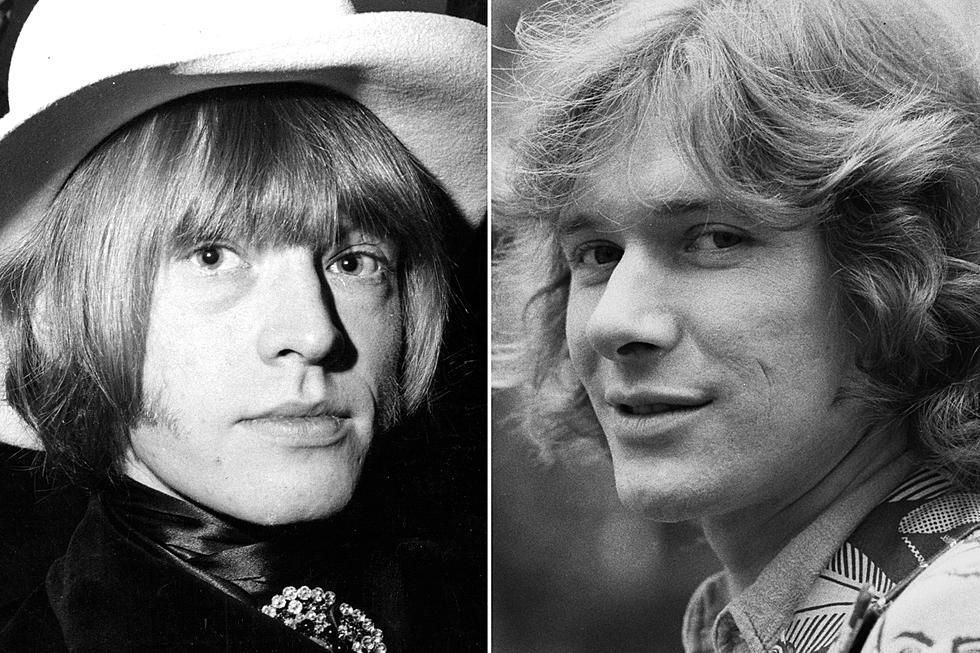
When Manfred Mann Hit No. 1 With ‘Do Wah Diddy Diddy’
Even though the British Invasion would eventually spawn some of the greatest songwriters of all time, its earliest beginnings included plenty of cover songs. Count Manfred Mann among those who made an initial splash with somebody else's song – transforming the wordlessly salacious "Do Wah Diddy Diddy" into a chart-topping world-wide smash in 1964.
Manfred Mann had begun life as an R&B and jazz-inflected group. To that point, they'd notched U.K. hits with original tunes, including "5-4-3-2-1," but nothing on this scale. "It hadn't started off as a "Do Wah Diddy Diddy"-type band at all," Mann told US magazine in 1973. Their update of a minor hit by the Exciters from earlier in 1964, however, would hurtle Manfred Mann to No. 1 on both the U.S. and U.K. charts -- and change the group's musical profile forever.
Penned by Brill Building stalwarts Jeff Barry and Ellie Greenwich, "Do Wah Diddy Diddy" had stalled at No. 78 as performed by the Exciters, despite that girl group's earlier Top Five success in 1962 with "Tell Him." Frustrated, and placing the blame squarely on the United Artists label for mishandling the song, Barry and Greenwich were prepared to release their own version when Mann expressed interest. (Barry and Greenwich's take, recorded as the Raindrops, would remain unreleased until 1994.)
It was frontman Paul Jones who'd stumbled across the Exciters' take. "We were working our way through my record collection," he once said. "I always had something that we ought to do. I loved the Exciters' version of "Do Wah Diddy Diddy." What a great song, and what a great euphemism for sexual dalliance."
Listen to Manfred Mann's 'Do Wah Diddy Diddy'
Jones' gritty vocal served the scuff things up, reshaping the song with a distinctly modern personality – all while Manfred Mann and company kept its original pop sound intact. Released as a single in July 1964, the impact was immediate. "Do Wah Diddy Diddy," recorded a month earlier on June 11, 1964, moved Manfred Mann to the front lines of the British Invasion.
Greenwich, though happy to see the song enjoy such widespread attention, later expressed one reservation about Manfred Mann's hip remake: "I was an English major, and when he sang, 'I knew we was falling in love' – I don't think so!" she said in the Brill Building documentary The Teens Who Stole Pop Music.
Like most of the Brill writers, with the exception of Carole King, Greenwich never got to bask in the glory of being a recording artist. Even the kind of behind-the-scenes notoriety associated with "Do Wah Diddy Diddy" eventually vanished, as quickly maturing popular bands looked less and less to outside composers. By the late-'60s, singer-songwriters would completely dominate the charts.
Manfred Mann was certainly part of that revolution – though, ironically enough, their two biggest subsequent hits were again penned by others. A 1967 version of Bob Dylan's "Quinn the Eskimo (Mighty Quinn)" topped the U.K. charts and went to No. 10 in the U.S. They then took Bruce Springsteen's "Blinded by the Light" to No. 1 in 1976, after a name change to Manfred Mann's Earth Band.
See the Top 100 Albums of the '60s
More From Ultimate Classic Rock









